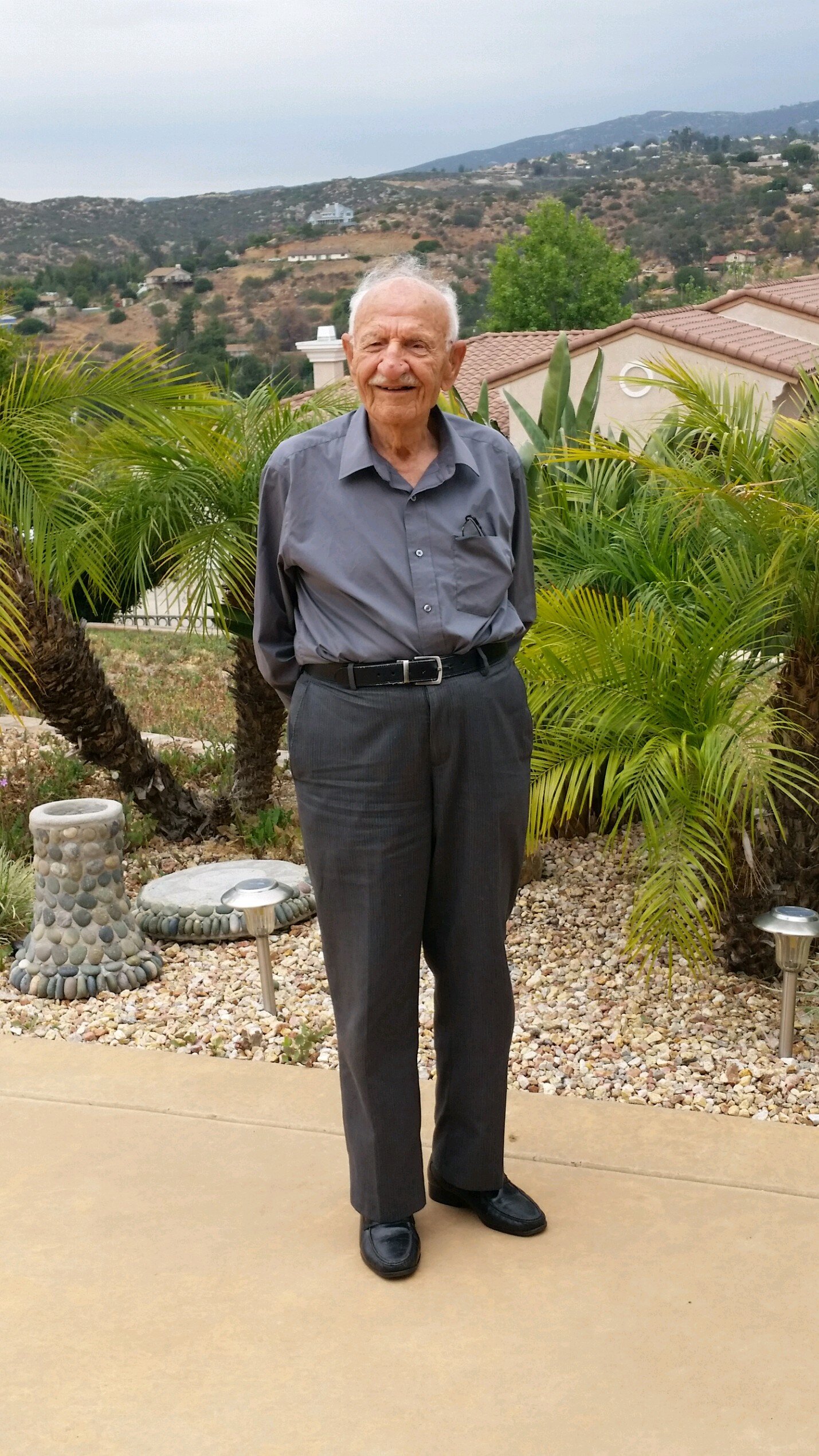Remembering Baba
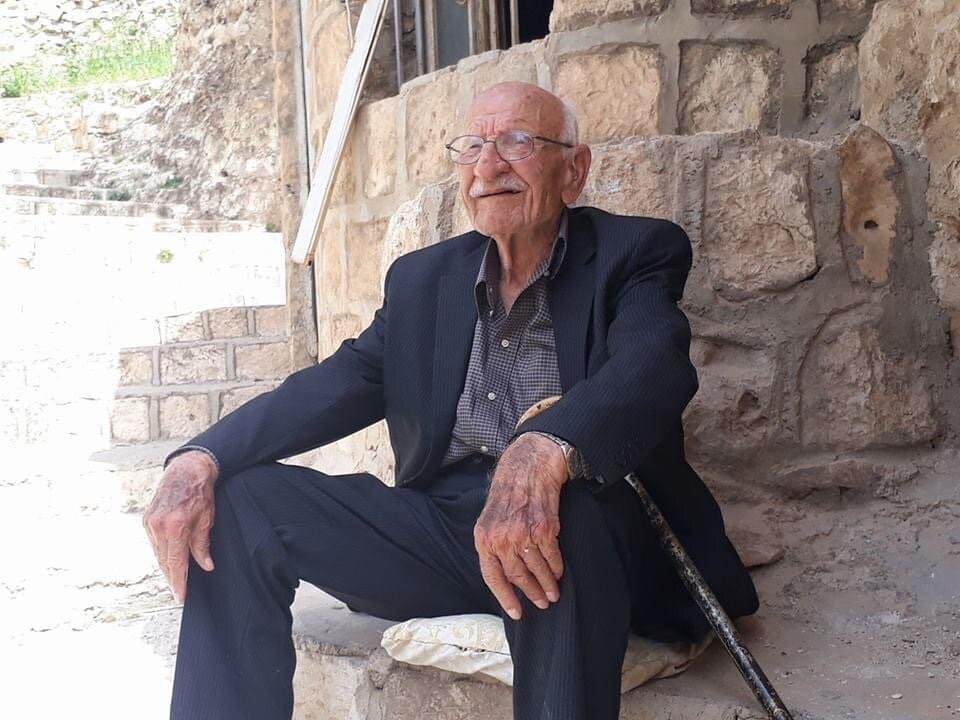
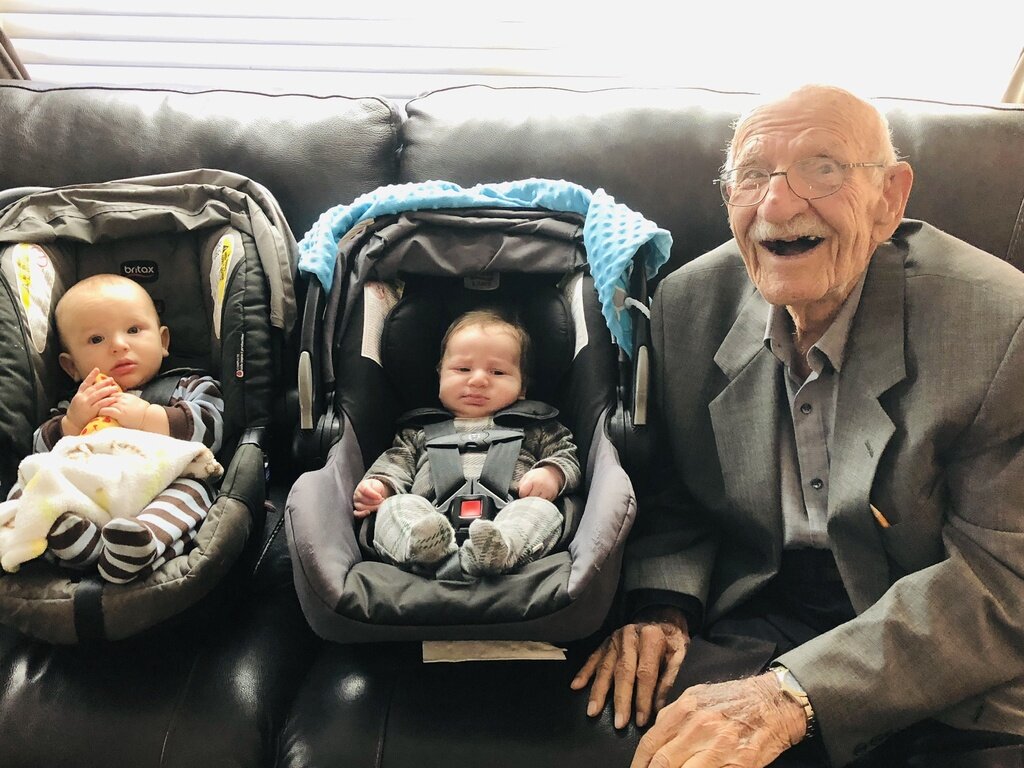
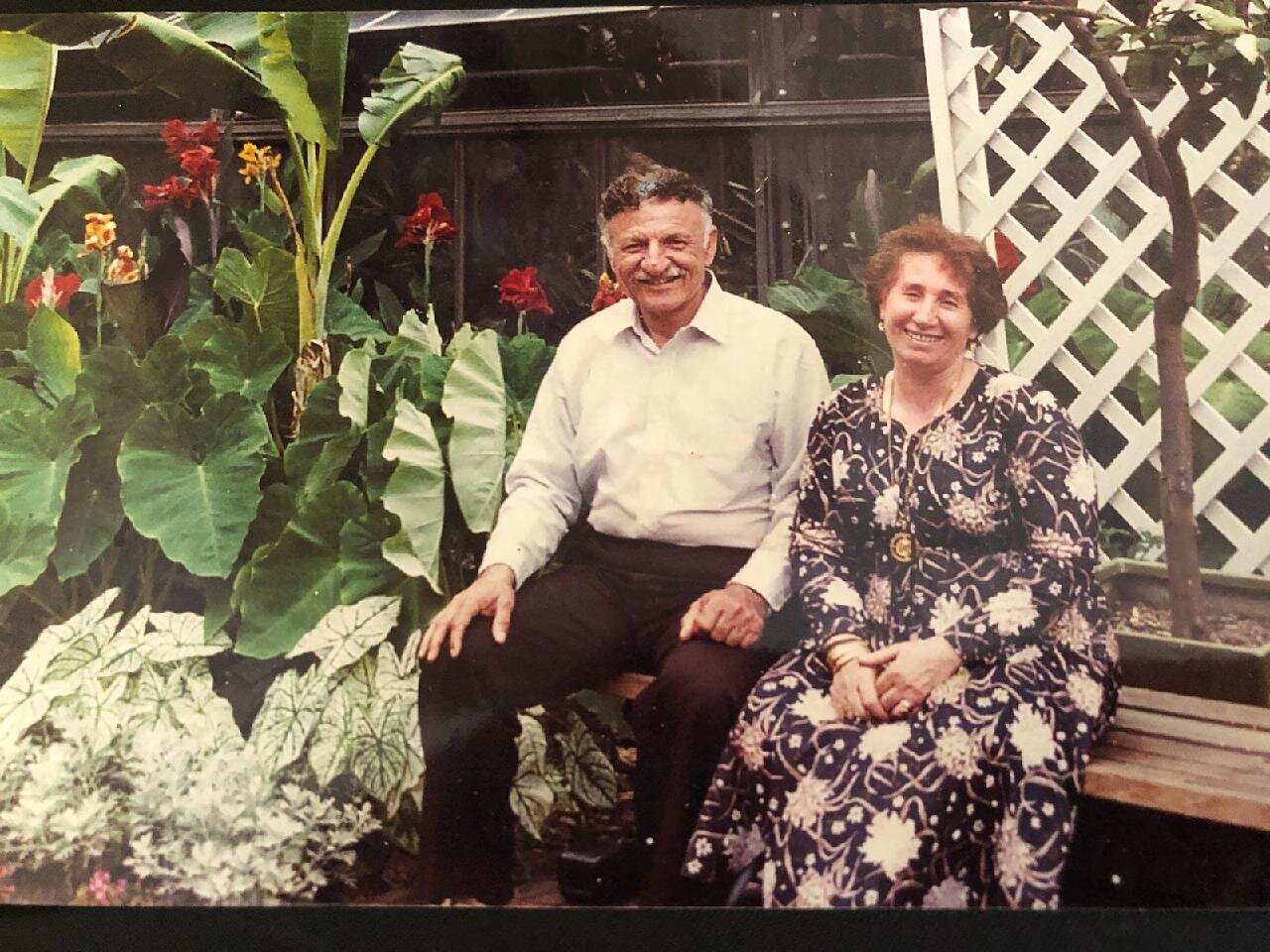
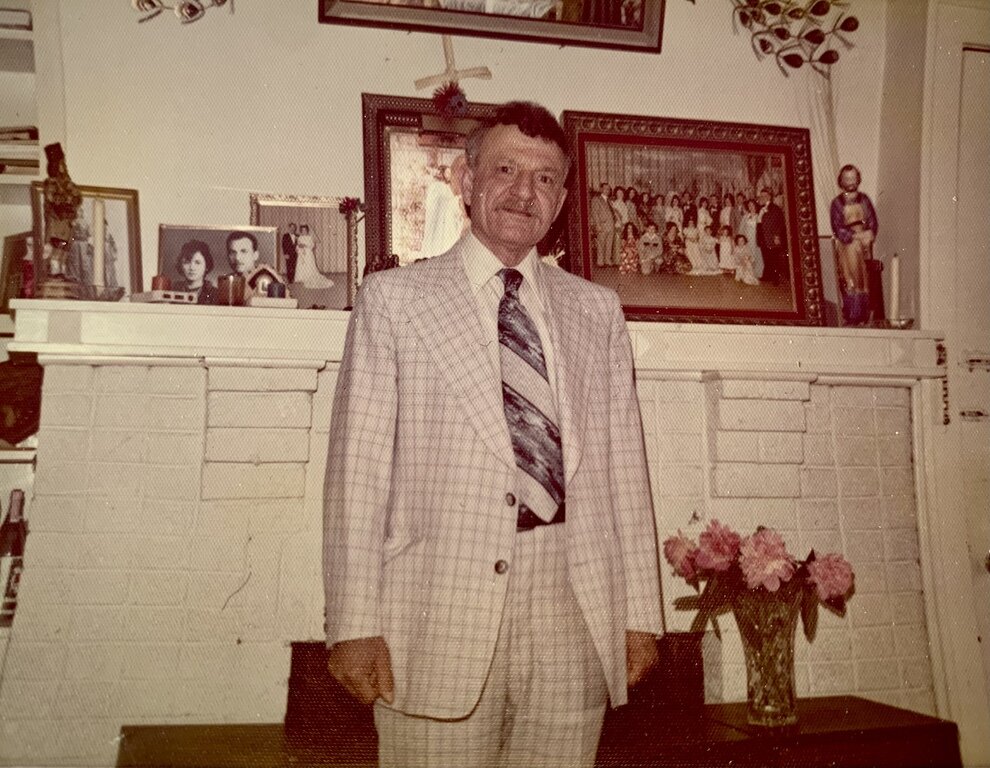
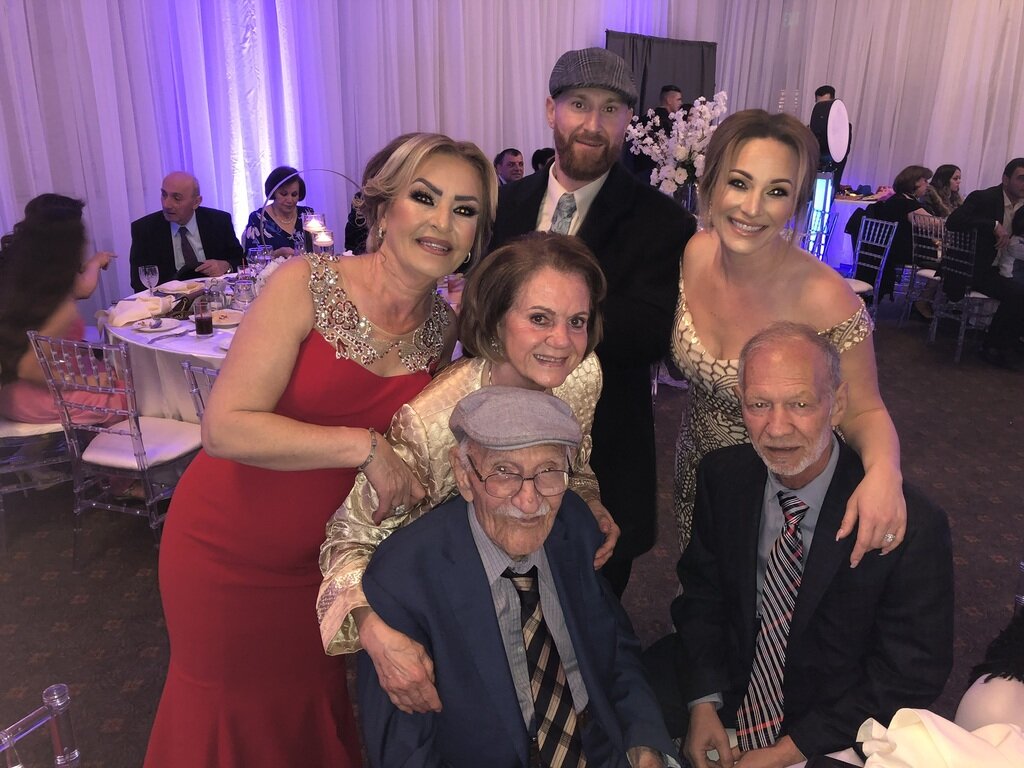
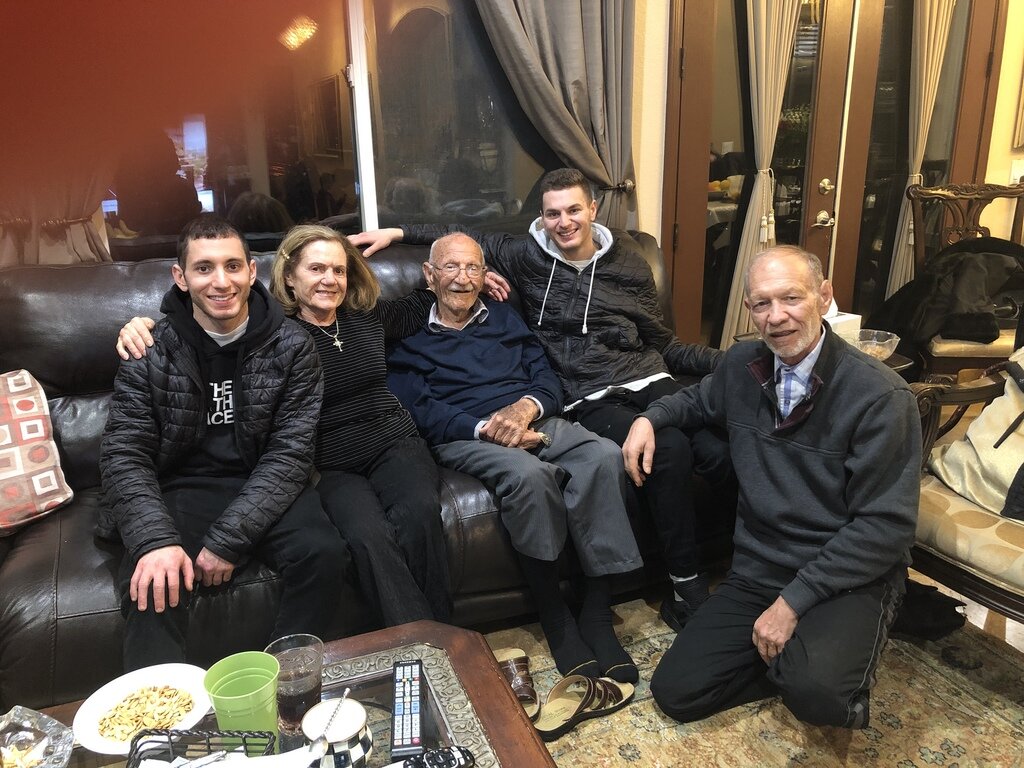
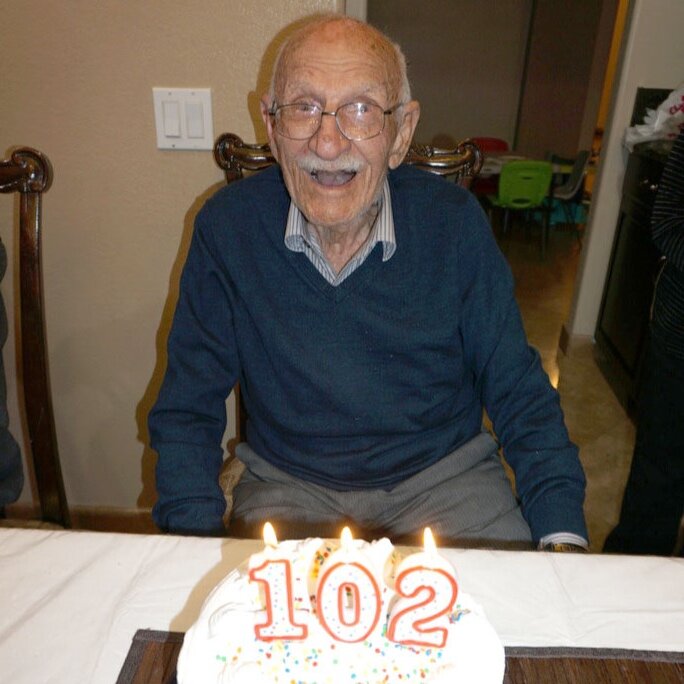
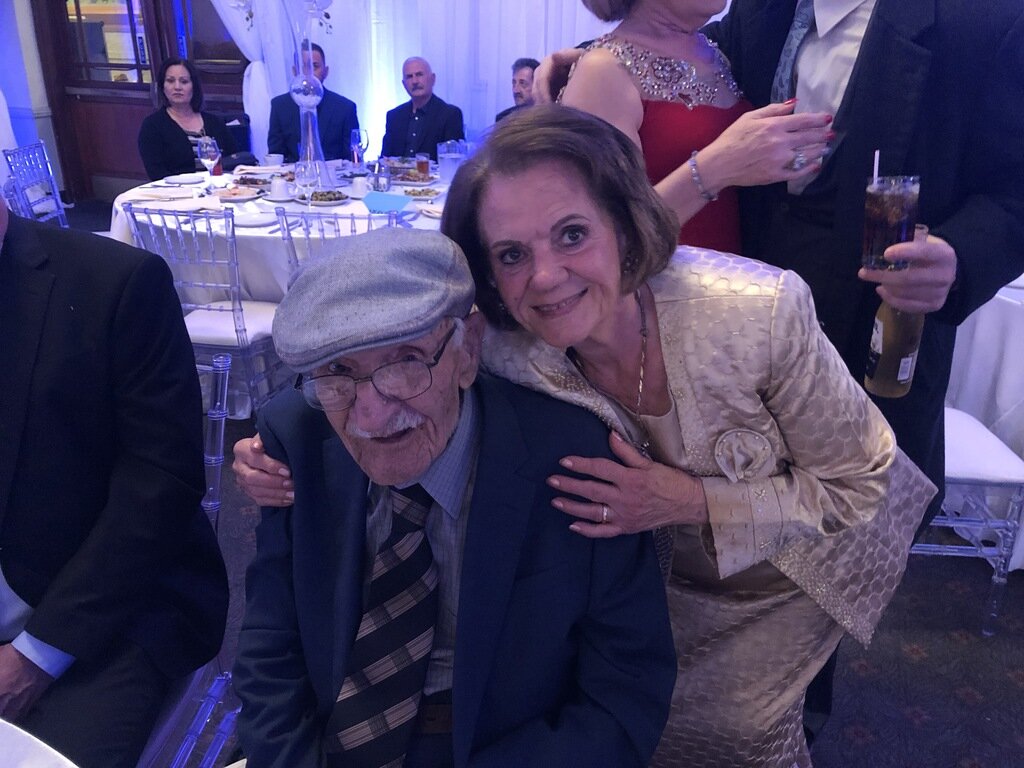
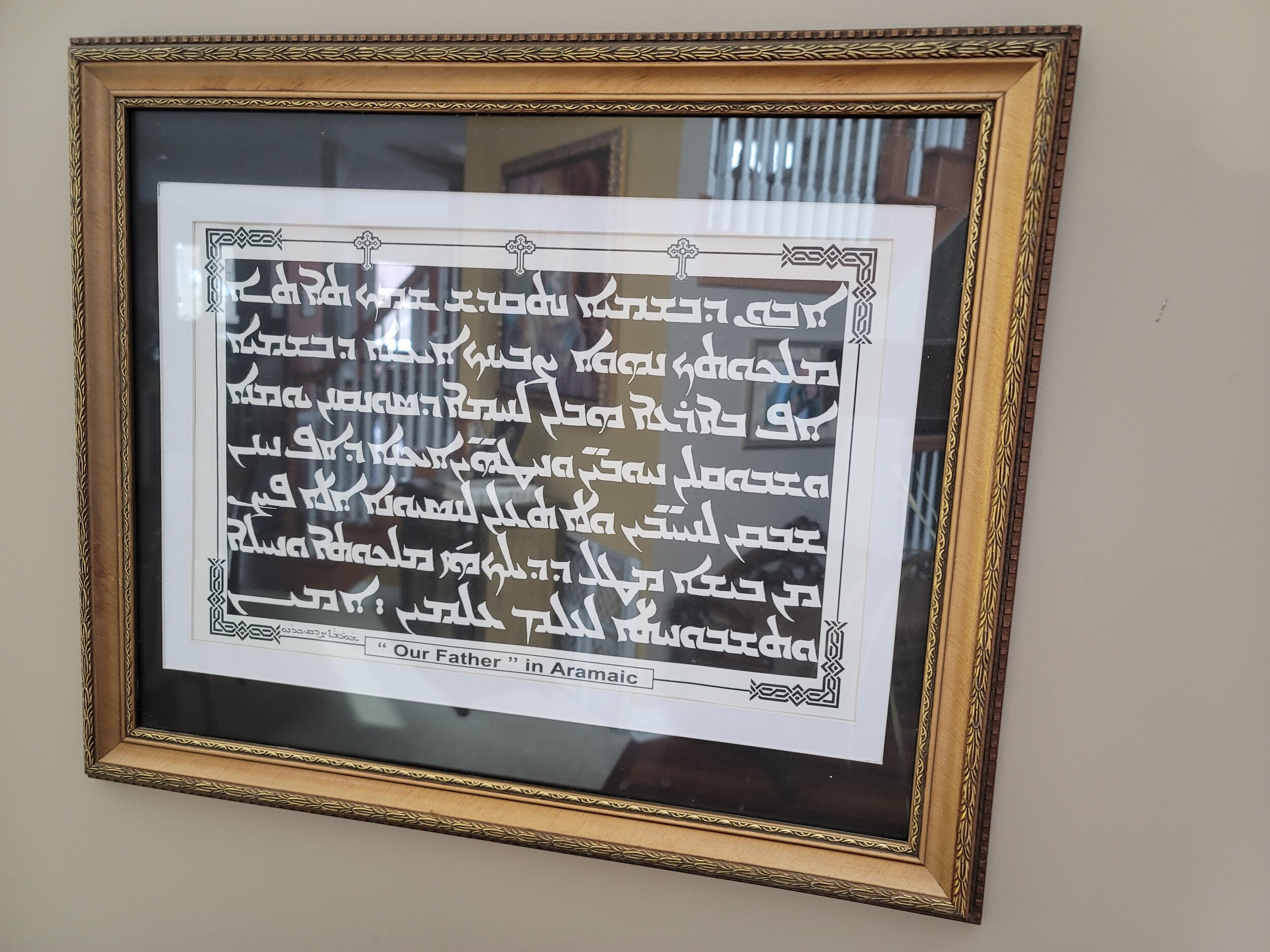
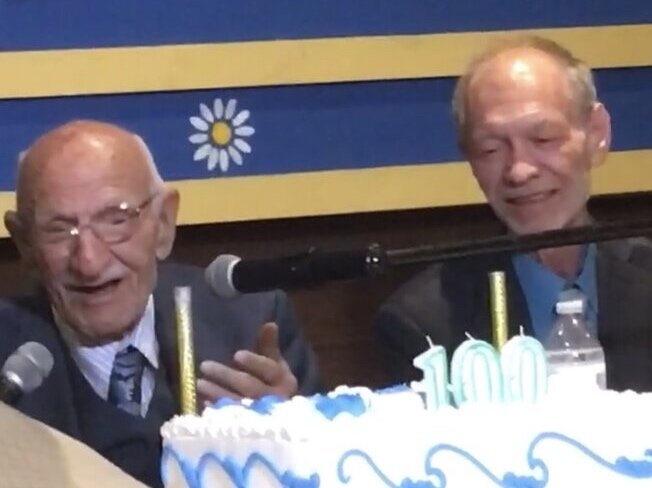
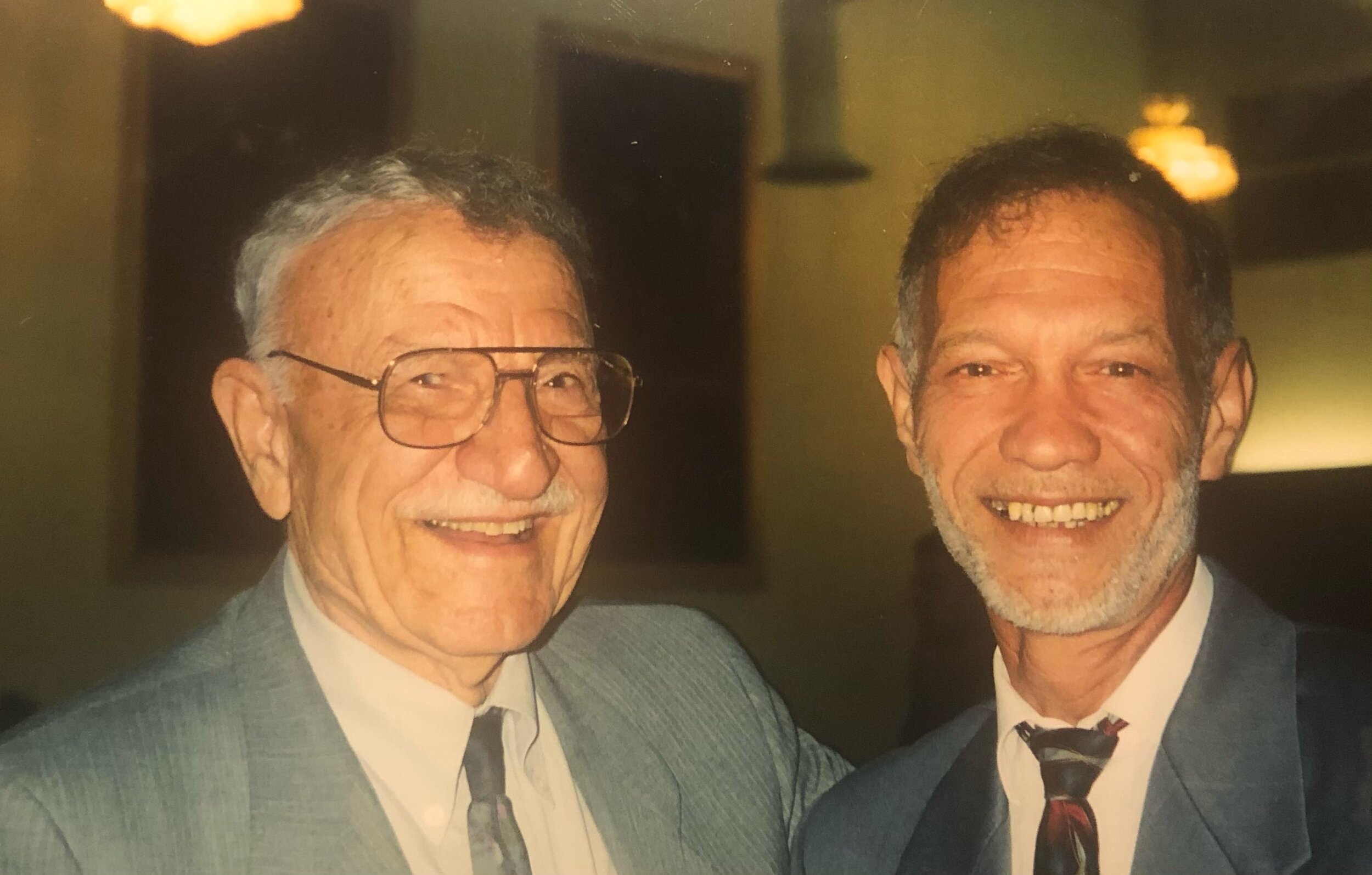
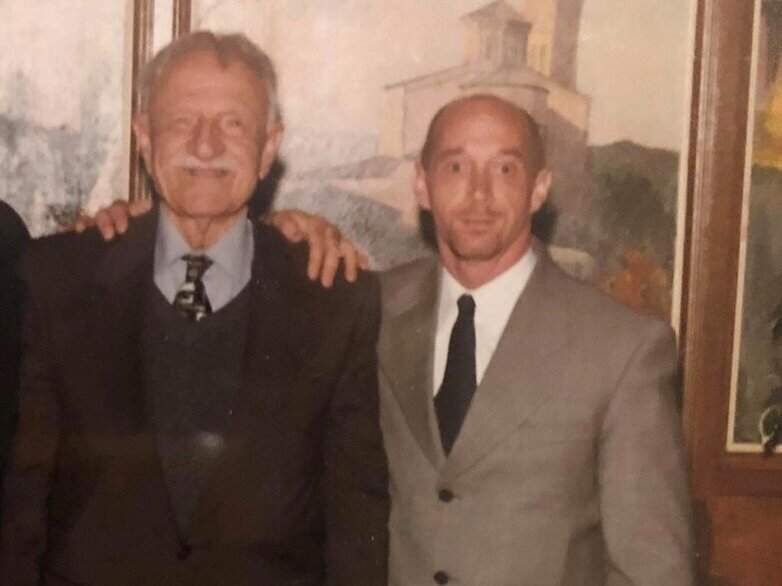
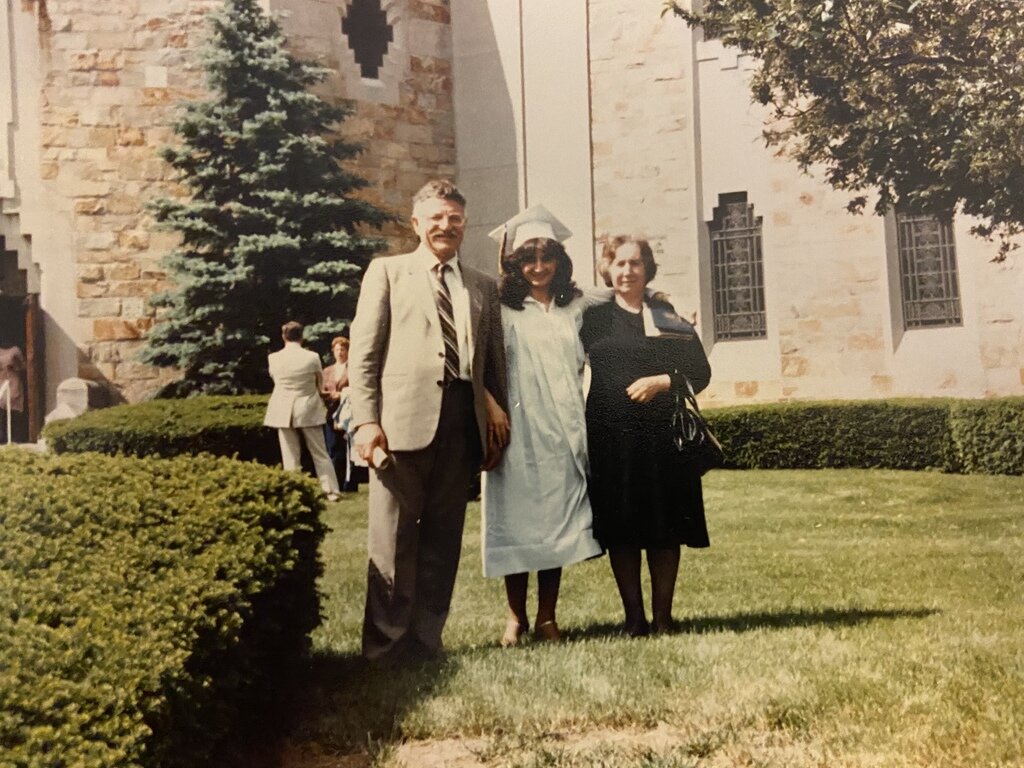
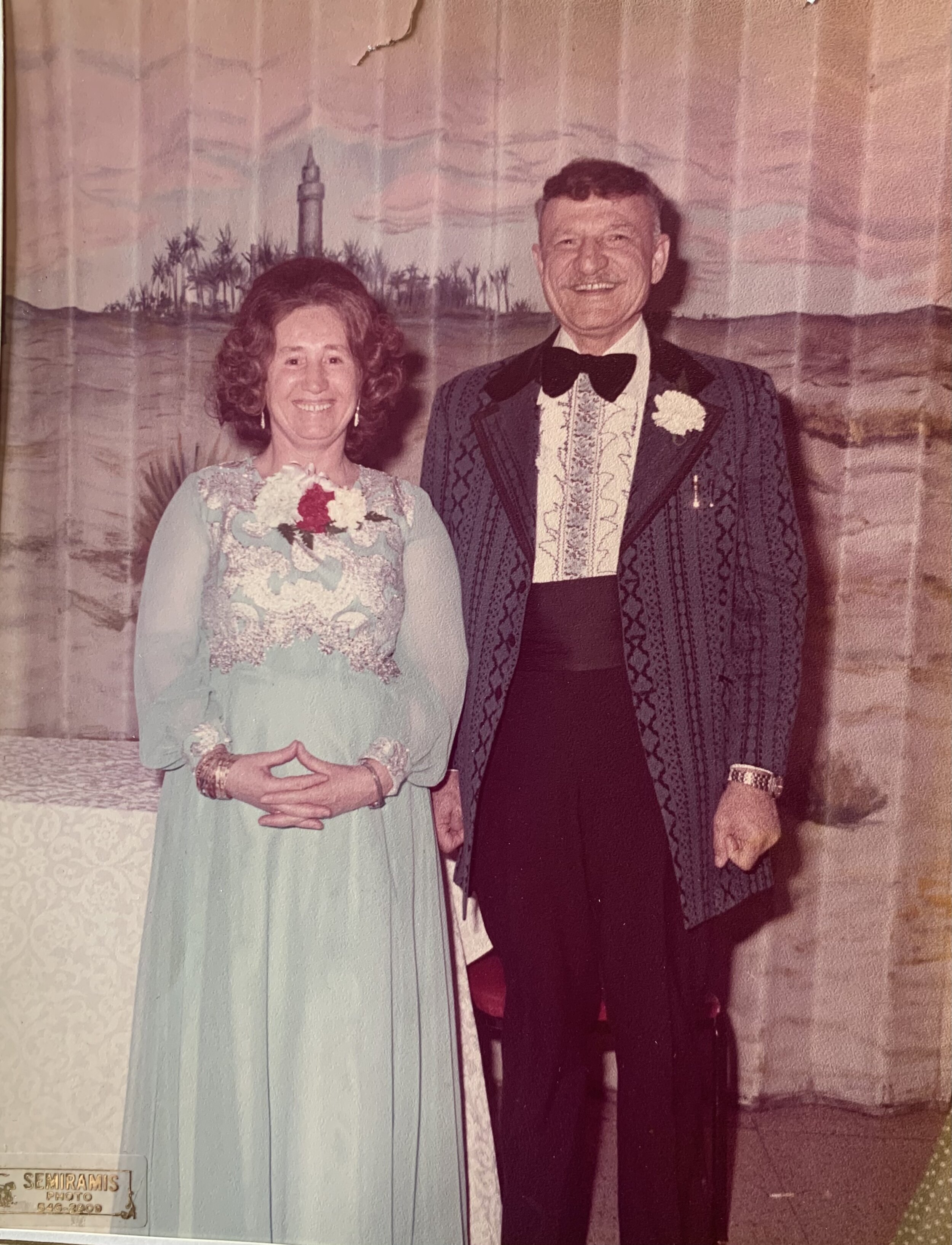
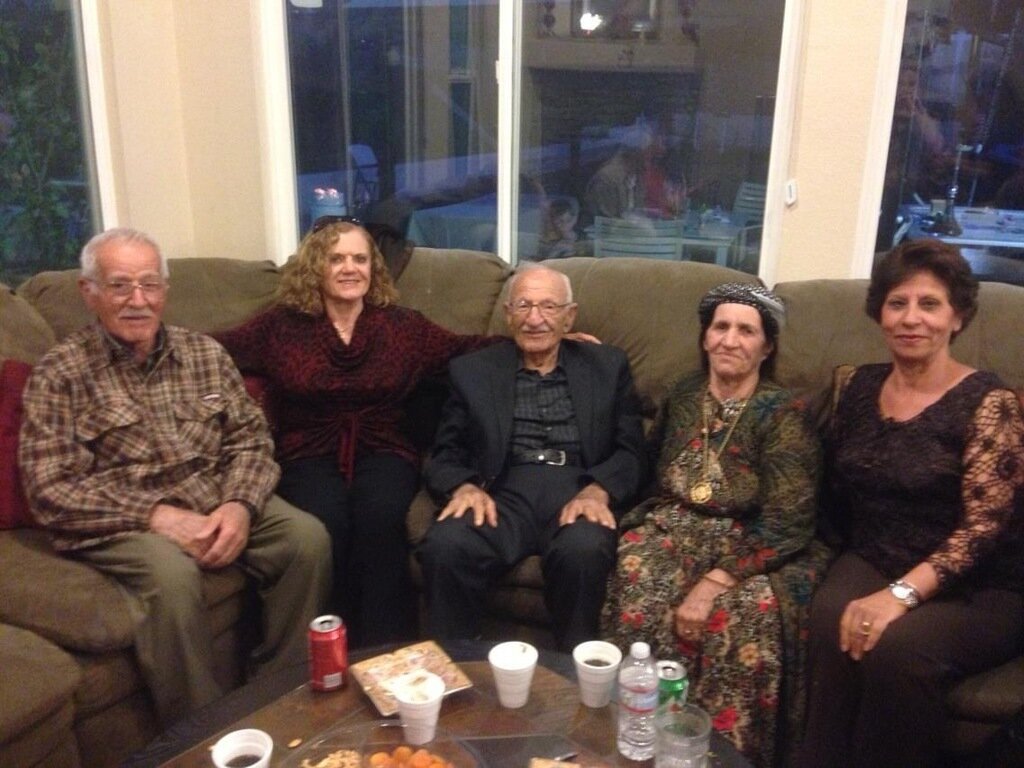
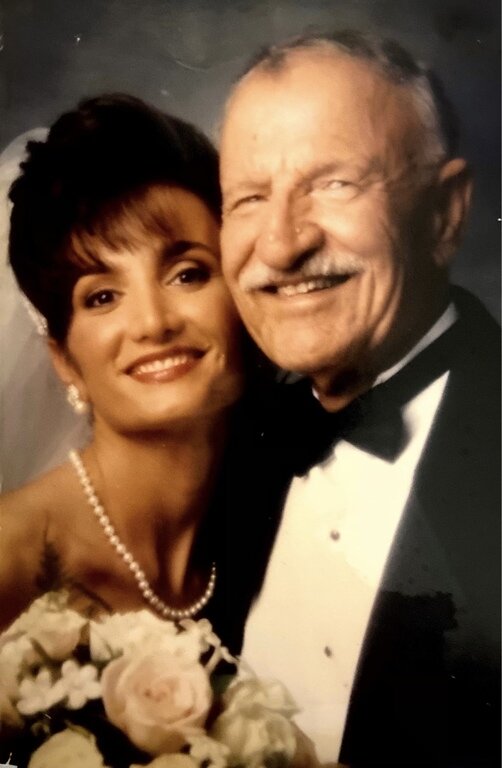
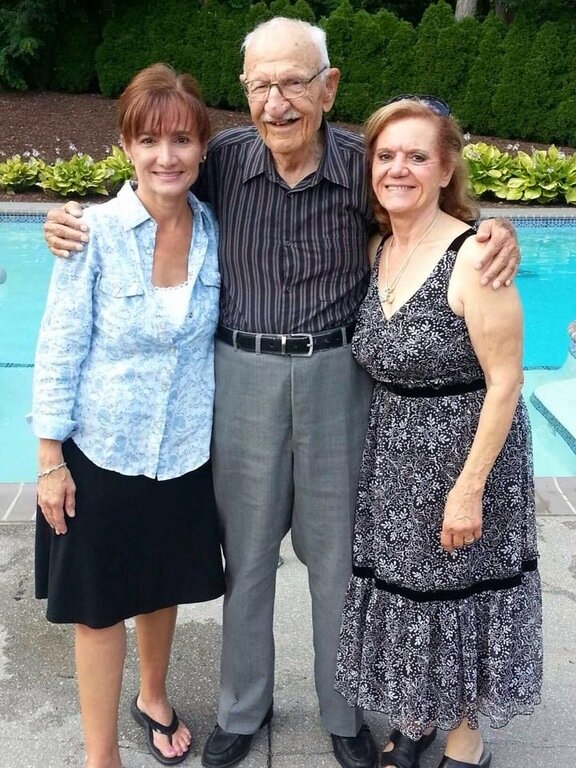
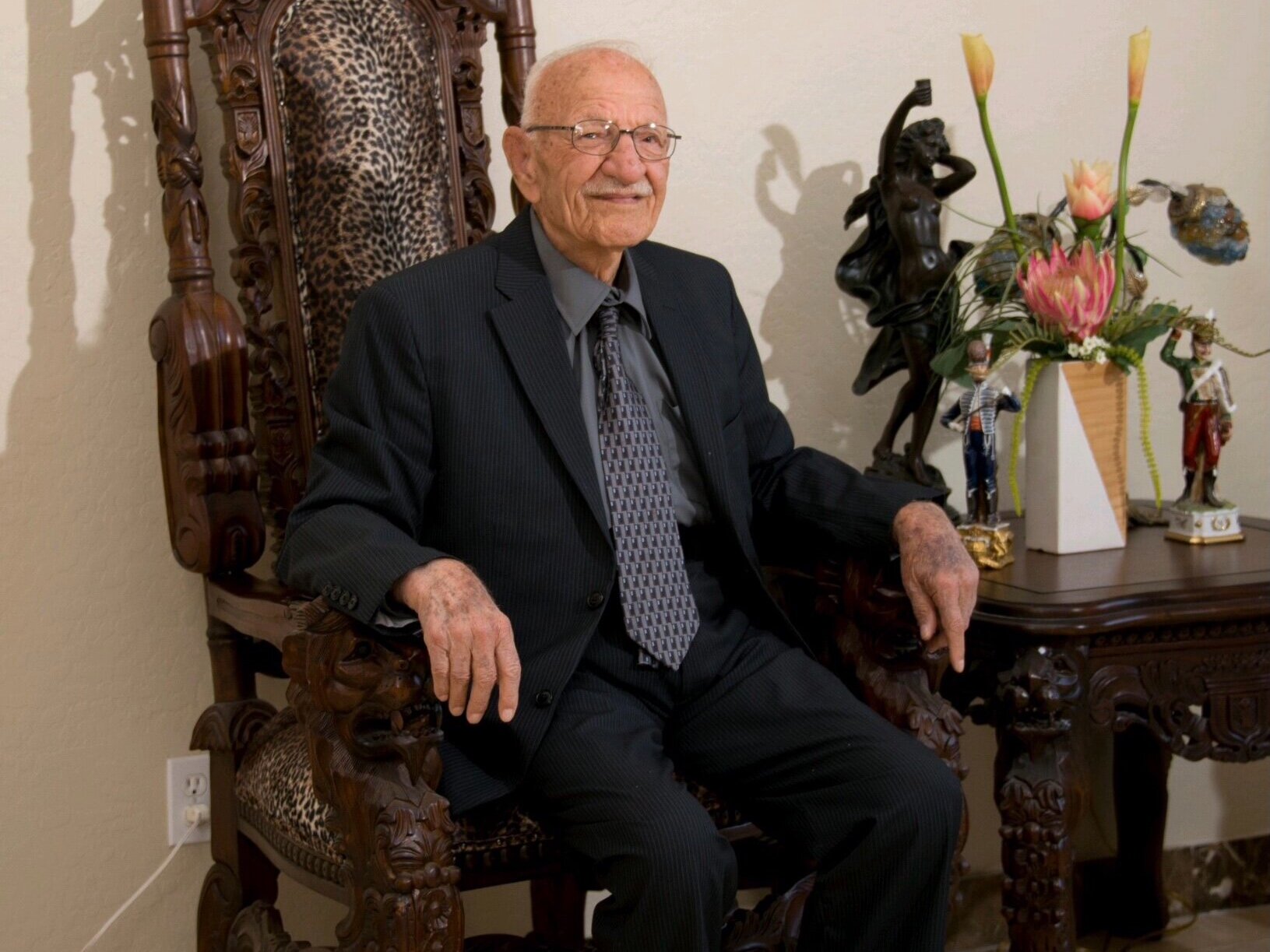
Shamasha Sadik Barno dies at 103
By Vanessa Denha Garmo
I can still smell the aroma of his pipe floating in the air with every puff he took. My grandfather would set his tobacco on the mantel of the fireplace of his home on Golden Gate Street, just off of 7 Mile and Woodward not far from what was once the Michigan State Fairgrounds. I would watch him fill the pipe and puff away while singing hymns in our native tongue or sitting at his desk writing books and prayers in Aramaic.
His children and grandchildren called him ‘Baba’ while everyone else knew him as Shamasha Sadik Barno. He became a sub-deacon (shamasha) in the Chaldean Church in Alqosh, Iraq at the age of 17, welcomed by Father Yousif Abaya and Bishop Ablahad Sana.
Shamasha Barno was born and raised in the northern part of Iraq called Alqosh. The home he was born in is still in the family. His father, my great-grandfather, died when Baba was in his twenties. As the eldest of seven kids, he was thrusted into becoming the patriarch of the family. He worked as a truck driver for the British Petroleum (BP) company for several years and then a bus driver for St. Joseph School in Baghdad.
In 1937, he married my grandmother, Agatha Poullath. They left Iraq for the United States 30 years later, in 1967. It was just before the Detroit riots. Their second eldest child, Souriya, my mom, was living in America, married to my dad, Sabri. My mom and dad, with three kids of their own, sponsored my grandparents and the entire family as immigrants into the United States.
My grandparents lived at the Detroit home for more than two decades while watching their children marry and have children of their own. Baba and my grandmother with their three youngest kids moved to West Bloomfield in the 1980s before moving to California, where he lived for more than 30 years.
Agatha passed away in 2006, after enjoying a union that spanned almost seven decades and produced 17 children, 64 grandchildren, 80 great-grandchildren and 16 great-great-grandchildren (so far).
Like many immigrant parents, my Baba tried his best to assimilate. One night in the actual wee hours of the morning, he was driving home from a relative’s house. He noticed standing at the corner of a street on Woodward his young teenage son Gary. His son’s ball of frizzy hair, considered the style in the 70s, first caught his eye. He pulled over and yelled at Gary to get in the car.
On the drive home, he continued to lecture his son in Sourath about staying out late and the dangers of hanging out on the streets of Detroit. Just seconds before pulling up to his home, Baba looked over at his son to make sure he was listening to him and realized a stranger was sitting next to him. It was not his son after all! He quickly pulled over and yelled at the teenager to get out of his car.
Shaken a bit by his mistake, he parked his car in his driveway. He ran into the home and up the stairs to check on his kids, and sleeping in bed was his son Gary. The family still laughs anytime someone tells that story.
Although they never served together as sub-deacons, Shamasha Kairy Foumia and my grandfather knew each other well. “He used to send me whatever he wrote,” said Foumia. “He translated many of our readings from the Old Testament which we are still using today.”
Baba’s help was invaluable. “We took all his translations and were able use them to update our prayers with other translators,” explained Foumia. “We have Chaldeans from all over Iraq so it helped to get translations from various villages. What he did for us and the church was just wonderful.”
In September of 2017, seminarian Junior Jwad sat down with Shamasha Barno for a Chaldean Voice interview. They talked about his writings as well as his work in the Church. Of his writings, “I believe his favorite was a book of hymns that he wrote,” recalled Seminarian Jwad. There are many feast days in the Chaldean Catholic Church and most have hymns to celebrate them. “He decided to make more hymns for these holidays so that there would be a larger variety of hymns used at masses,” said Jwad.
Shamasha Barno loved to distribute the poetic hymns he wrote by hand to people at church on the specific feast days. “He was very famous for two things,” said Jwad, “his amazing linguistic skills in Aramaic, (especially his very nice hand Aramaic handwriting) and his love for Alqosh.”
On many occasions, he settled disputes and brought the Alqosh community together or worked with different societies and groups to be a unifying influence. “Everyone respected him,” remembers the seminarian. “He was invited to every meeting and conference and his input was always very valuable.”
As a senior shamasha in the community, Baba taught countless deacons and priests prayers and phrases in Aramaic and shared history and knowledge of the Chaldean liturgy. He never missed mass and prayers at church; yet he wanted to give everyone a chance to participate.
“When he got older and his voice wasn’t what it used to be, he decided to no longer serve on the altar during mass so that he can give a chance for other younger deacons,” recalled Jwad. “This act of humility became a great example to others…he loved seeing young people being involved in the Chaldean prayers and liturgy.”
At the time of his passing, my grandfather was known to be the oldest living shamasha in the Chaldean community.
He was born during the Fall of Baghdad which was part of the Mesopotamia Campaign; fighting occurred between the forces of the British Empire and the Ottoman Empire in the First World War.
He died during and because of a pandemic that swept through the nation and in many countries around the globe. He also suffered with pneumonia at the time of his death. On February 7, inside a San Diego, California hospital, Shamasha Barno took his last breath just after his granddaughter Rhonda Barno Fattohi and her brother Anthony finished praying the Divine Mercy Chaplet.
His daughter Souriya Denha, and son Gary Barno with Samira Barno, Raymond and Kifah Barno and a couple of grandchildren were on a Facetime call with them at the time of his death.
Because of COVID-19 restrictions, most family members were not allowed to visit him. The hospital permitted two people to be present at the time of his passing. Days before he passed away, about 30 family members were present on a Zoom call a nurse had set up so they could talk to him and pray for him.
His funeral was held at St. Peter’s church in San Diego, celebrated by Bishop Sarhad Yawsip Jammo. “I knew him from Baghdad,” said Bishop Jammo. “He was always a humble and meek person. He was an example for others. I never knew him to ever utter one ungodly word.”

